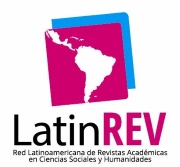CALL FOR SUBMISSION OF ARTICLES FOR THE DOSSIER: "CURRENT DEBATES ON CONSUMPTION IN ANTHROPOLOGY AND SOCIAL SCIENCES"
Organization of the dossier:
Eliane Tânia Freitas – Ph.D. in Social Anthropology, professor at the Department of Anthropology and Post-Graduate Program in Social Anthropology, UFRN.
Solange Riva Mezabarba – Ph.D. in Anthropology, Senai Cetiqt Fashion Design College.
Filomena Silvano – Ph.D. in Anthropology, professor at NOVA FCSH and integrated researcher of CRIA and IN2PAST (portugal).
Summary of the dossier call:
In 1979, Mary Douglas and Baron Isherwood launched The world of goods: Towards an Anthropology of Consumption. The book, for the first time, analyzes consumption through the lens of anthropology. Goods, for the authors, are communicators and act as a powerful classification system. Consumption is a process, and what happens to goods in everyday life is part of this process, that is, it is necessary to think about what happens to goods when they reach the hands of consumers. A decade later, in The Invention of the Everyday, Michel de Certeau and two of his researchers, Pierre Mayol and Lucy Giard (1980) reaffirmed this aspect of consumption, arguing that individuals produce themselves in everyday life. Thus, the idea of consumption practices, involving choices, the different forms of access to goods, the fruition and, a theme that is being strongly discussed nowadays, the disposal, are parts of this process.
Nowadays we notice the intense presence of the internet and connected digital devices in social relations, in the forms of negotiation and consumption processes, now strongly filtered by the action of algorithms in digital media (DOMINGUES, 2013 and 2016), which, in itself, already opens a whole agenda of debates in the field of consumer studies, converging to questions about surveillance, politics, rights. The coronavirus/COVID-19 pandemic that stopped the world in 2020 catalyzed, for those with access to the network, these mediated forms of production, negotiations (monetary or not) and consumption of goods, services and digital experiences (such as games, e-books and audiovisual streamings), or material (stores, websites and apps for buying and selling, in general).
It is in this context that we intend, with this dossier, to gather papers that bring reflections about practices and current debates about consumption, considering processes of choice, new forms of acquisition and access, fruition, experiences and disposal. We will especially welcome texts that include reflections based on results of ethnographic studies, and also those that address its algorithmic mediations and relationships with mass media, its political and/or legal dimensions, sustainability and environment, among other current discussions in the field of anthropology and social sciences that are dedicated to its study.
The authors must submit their texts, following the rules of the journal, through the portal https://periodicos.ufrn.br/vivencia/index until August 15, 2023. The issue is expected to be published for the second half of 2023. Vivência magazine publishes texts in Portuguese, Spanish, English and French. Therefore, foreign articles are welcome.
For more information, send a message to the email viveviareant@yahoo.com.br indicating the subject of the dossier as the subject of the message: “Current debates on consumption”.
It is essential that the authors observe the rules of Vivencia [at: https://periodicos.ufrn.br/vivencia/about/submissions] before submitting their proposals.
References
DE CERTEAU, Michel. A invenção do cotidiano. Vols. 1 e 2. Petrópolis, Vozes, 2014 (1980).
DOMINGUES, Izabela. Terrorismo de marca. Rio de Janeiro, Confraria do Vento, 2013.
DOMINGUES, Izabela. Publicidade de Controle. Consumo, Cibernética, Vigilância e Poder. Porto Alegre, Sulina, 2016.
DOUGLAS, Mary; ISHERWOOD, Baron. O Mundo dos Bens - Para uma Antropologia do Consumo. Rio de Janeiro, Ed. UFRJ, 2006 [1979, 1996].
DOUGLAS, Mary. “O Mundo dos Bens, vinte anos depois”. Horizontes Antropológicos: “Antropologia e Consumo”. Ano 13, n. 28 (2007). Porto Alegre: UFRGS/PPGAS, 2007.

 Português (Brasil)
Português (Brasil) English
English Español (España)
Español (España) Français (Canada)
Français (Canada)






